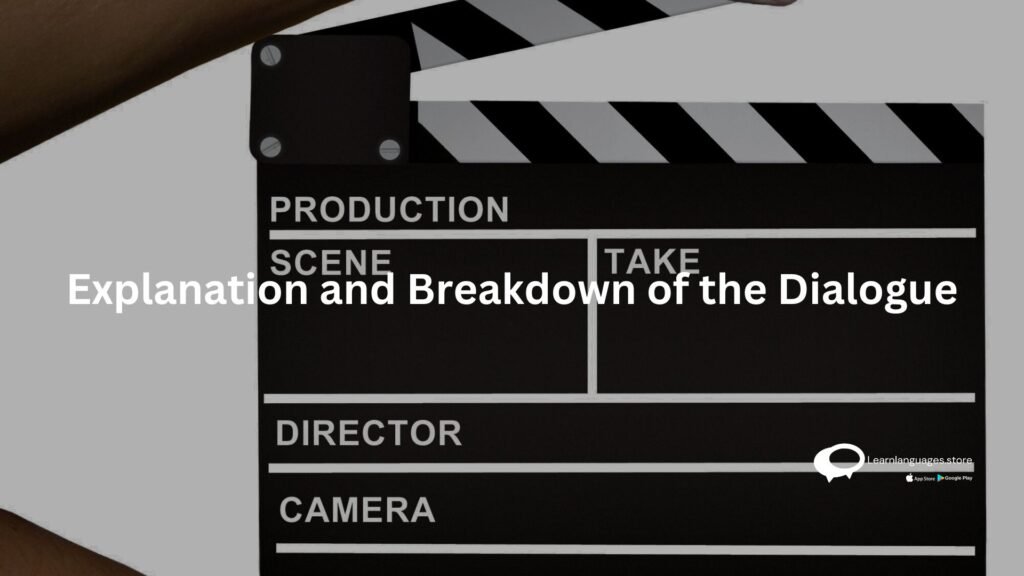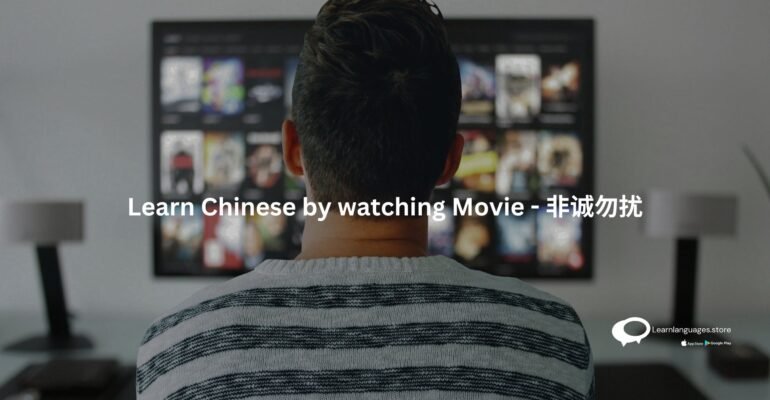Learn Chinese by watching Movie – 非诚勿扰
Learn Chinese by watching Movie – 非诚勿扰
Learn Chinese by watching Movie – 非诚勿扰 – Watching films in the language you want to learn is one of the most effective methods to do it. The Chinese comedy “If You Are the One” 非诚勿扰 (fi chéng wù rǎo) is the subject of our discussion today.

A little about the movie
Ge You and Shu Qi starred in the Chinese romantic comedy film If You Are the One, which was released in 2008 and became an enormous commercial success. The film was directed by Feng Xiaogang. It grossed more than 364 million, which is equivalent to $53.7 million US dollars.
The title of the film is a homophone of the word “diligence” “勤奋” and it tells the story of a man named Mr. Qin Fen 秦奋 who is now in his late 40s. After spending several years in the United States, he decides to go back to his native China. At the beginning of the story, he tries to persuade an angel investor who is both ignorant and wealthy to buy his “new technology.” (He ended up making two million and a half dollars.)
After his financial situation has improved, Mr. Qin begins his search for a bride and begins dating. He uses online dating sites to place personal advertising. We are going to have a look at his funny personal advertisements at a later time; for now, however, we are going to examine the first scene in the movie, which is when he and the angel investor Mr. Fan meet.
(Please click here to see the first scene. http://v.qq.com/cover/4/40nwh0gdlv64gbw/e0012ar1r8f.html 1’14-5’58. Have patience with the commercial breaks. VPN is needed if watching in India. The conversation runs from 2 minutes and 13 seconds to two minutes and 32 seconds.)
It is just some light conversation and is really informal. A bit funny. The way in which individuals in China show respect for others may be gleaned quite a bit from the way in which they utilize their language.

The dialogue which we will learn
The short dialogue has seven sentences:
范先生:你看看,我们是说英文呢,还是说中文呢?
秦 奋: 您定,您说哪个顺口说哪个,我都行。
范先生:那还是说母语吧。Nice to meet you!
秦 奋:说母语。
范先生:哎呀,你看看我,这个经常不说母语已经不习惯了。见到你非常高兴!
秦 奋:幸会!范先生:坐!
秦 奋:您请!
Vocabulary and Phrases Flashcards:
Explanation and Breakdown of the Dialogue
Mr. Fan is assuming that the visitor is completely proficient in both languages by asking the question in both tongues. The amusing thing about him is that he speaks with a thick Canadian accent. And this combination of prosperity and rusticity can be observed in everything he has as well as in the way he conducts himself.
Face, 脸面(liǎn miàn) also known as public image, is something that the Chinese people place a great value on, particularly those who consider themselves to be high-profile personalities. Mr. Qin has just returned to China from the United States, widely regarded as one of the best countries in the world. Mr. Fan is giving the impression that he, too, has been over the globe.

The sentence structure is (phrase to get attention)+who+do+what+modal particle(forming a question)?
你看看: Literally, it means You Take a Look. But it is normally used to get someone’s attention and start a conversation. Similar to Hey, or Look, or What do you say?
是…还是…This is a classic parallel structure expressing choices. 是N1还是N2. It is something or something else? We do something or something else? Example: 你是中国人还是美国人?Are you Chinese or American? 你喝咖啡还是茶?Do you drink coffee or tea?
Forming a question: It can be very easy to form a question in Chinese. The whole sentence is structured exactly like a statement, but by simply adding a question mark and changing the tone from flat to up, you now have a question. Example: 我长大了。(wǒ zhǎng dà le ;accent is on zhǎng)I have grown up. 我长大了?(accent is on dà) I have grown up? The latter sentence indicates a question form of the sentence.
呢ne: there is no tone mark on “ne”, indicating this word should not be emphasized and the pronunciation is short and light. Normally modal particles and the second word in repetition are pronounced this way. Example: 呢(ne), 了(le), 的(de), 看看(kàn kan)说说(shuō shuo)
I am grateful that you took the time to read my essay on teaching yourself Chinese via Comedies. I really hope that you are able to integrate some of these new vocabulary words and sentence patterns into your everyday use of Chinese. In the next piece, we will go into phrases 2 and 3, as well as their respective interpretations, and we will also discuss the many different varieties of Chinese dialects; neither Qin Fen nor Mr. Fan are speaking standard Mandarin. Except when it’s CCTV News, we almost never do. Be well, till next time.

Learnlanguages.store’s Chinese language classes are highly recommended for anybody in Mumbai or Navi Mumbai, India, who is interested in learning the Chinese language. This app is available for free on both the Google Play Store and the Apple App Store.
Happy Learning!
Learn Languages Store
Vashi,
Email: services@learnlanguages.store










